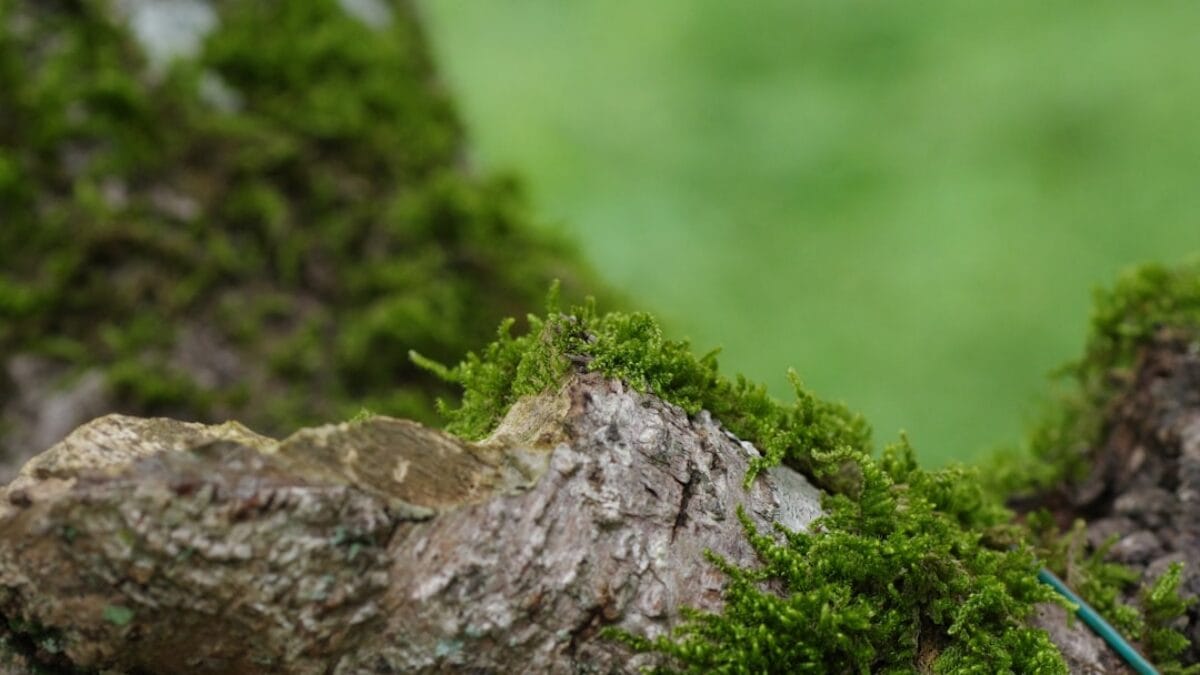In the face of accelerating climate change, biodiversity loss, and widening social inequity, communities around the globe are turning to ancient wisdom for guidance. One of the most vibrant and under-explored reservoirs of eco-centric thought is Islam. The Arabic word “deen” signifies way of life, and when paired with the color of nature, the phrase Green Deen emerges as a holistic framework for living in harmony with the Earth. From Qur’anic verses that describe humankind as khalifah (stewards) to Prophetic practices that champion water conservation, Islamic teachings offer a time-tested blueprint for sustainable living that resonates far beyond Muslim-majority societies.
Understanding Green Deen
At its core, Green Deen is the conscious practice of embedding environmental ethics into the rhythm of daily life in accordance with Islamic sources: the Qur’an, the Sunnah (Prophetic traditions), ijma’ (scholarly consensus), and qiyas (analogical reasoning). Instead of treating ecology as a secular add-on, Green Deen weaves sustainability into worship, commerce, and community life. It challenges the false dichotomy between spiritual devotion and environmental activism by asserting that caring for creation is, in fact, an act of ibadah (worship).
Theological Foundations
- Tawhid (Oneness of God): Because every atom sings the praise of its Creator, nature is sacred and deserving of respect.
- Amanah (Trust): Humans accepted the trust of vicegerency, agreeing to safeguard the Earth’s balance (mizan).
- Ma’rifah (Recognition): Contemplating the signs (ayat) within ecosystems deepens gratitude (shukr) to Allah.
Historical Precedents
From the hima (protected grazing reserves) established by the Prophet Muhammad ﷺ in Madinah to the sophisticated water management of Islamic Spain, Muslim civilizations have long demonstrated sustainable urban planning and resource governance. These precedents inspire modern movements such as eco-halal farming, green mosques, and Islamic finance for renewable energy.
Key Components of Green Deen
1. Stewardship (Khilafah)
The Qur’an states, “It is He who has appointed you vicegerents upon the Earth…” (6:165). Stewardship is not ownership but responsibility. It demands that every decision—from the food on our plate to the investments in our pension funds—be filtered through the lens of intergenerational justice.
Practical Indicators of Stewardship
- Calculating and reducing one’s ecological footprint before embarking on Hajj or Umrah.
- Preferring regional, seasonal produce for iftar meals to cut carbon miles.
- Shifting mosque endowments (awqaf) toward regenerative agriculture projects.
2. Balance (Mizan)
Islamic cosmology revolves around the concept of balance. The Qur’an repeatedly warns against fasad (corruption) on land and sea caused by human excess. Achieving mizan in the 21st century translates into:
- Setting science-based targets to limit global warming to 1.5 °C.
- Applying life-cycle analysis when certifying halal products, ensuring that halal also means tayyib (pure and wholesome).
- Integrating zakat (almsgiving) with environmental restoration, such as rewilding degraded landscapes.
3. Justice (Adl)
Climate change disproportionately affects the poor and displaced. Green Deen frames environmental justice as a religious obligation, citing verses like “…and do not desire corruption in the land…” (28:77). Muslim NGOs such as Islamic Relief now prioritize climate-resilient water systems in drought-prone Sahelian communities, embodying adl in action.
4. Conscious Consumption (Taqwa)
Ramadan is the perfect training ground for taqwa or God-conscious restraint. Green Deen expands this ethic beyond fasting from food to fasting from overconsumption, fast fashion, and single-use plastics. Consider the following table comparing traditional and Green Deen approaches to consumer choices:
| Aspect | Traditional Consumer Mindset | Green Deen Approach |
|---|---|---|
| Food Sourcing | Price-driven, imported goods | Local, organic, fair-trade, halal-tayyib |
| Packaging | Single-use plastic | Refillable, compostable, minimal waste |
| Energy | Non-renewable grid supply | Solar panels funded by green sukuk |
| Waste Disposal | Landfill | Composting, recycling, circular economy |
Benefits and Importance
Spiritual Rewards
Classical scholars such as Al-Ghazali taught that wasting resources (israf) is a major sin. Conversely, every mindful act—from fixing a leaky tap to planting a tree—carries ongoing charity (sadaqah jariyah). In an age of eco-anxiety, these teachings reframe sustainability as a source of tranquility (sakinah), not deprivation.
Economic Advantages
- Cost Savings: Mosques in Jordan that installed solar water heaters reduced utility bills by 40 % within two years.
- Job Creation: The global Islamic green economy is projected to exceed $2.6 trillion by 2030, spanning halal organic farming, green sukuk, and eco-tourism to historical Muslim sites.
- Risk Mitigation: Sharia-compliant divestment from fossil fuels shields endowments from stranded assets.
Social Cohesion
When communities co-create urban gardens on unused mosque land, they strengthen ukhuwwah (brotherhood/sisterhood) across ethnic and generational lines. In Cape Town, the Green Deen Movement SA has transformed vacant lots into food forests that feed 500+ families weekly, illustrating how ecological regeneration fosters social resilience.
Practical Applications
Greening the Mosque
With over 3.5 million mosques worldwide, congregational spaces are pivotal laboratories for Green Deen innovation.
Energy
- LED lighting and motion sensors to cut electricity use by up to 60 %.
- Photovoltaic canopies above parking lots that double as shade in arid climates.
Water
- Install greywater systems to reuse ablution water for landscaping.
- Rainwater harvesting cisterns shaped like traditional qanats to merge heritage and technology.
Waste
Post-Ramadan iftars often produce mountains of food waste. Green Deen Toolkit recommends:
- Digital RSVP systems to estimate attendance accurately.
- Composting stations co-managed by madrasah students.
- Donation pipelines to local shelters.
Halal-Tayyib Supply Chains
Embracing regenerative halal standards ensures animals are grass-fed on rotationally grazed pastures that sequester carbon. Brands such as Honest Chops (USA) and EcoHalal (Indonesia) now supply zabiha meat in compostable packaging, verified by blockchain for transparency.
Islamic Finance for Climate Solutions
| Financial Tool | Green Deen Adaptation | Impact Example |
|---|---|---|
| Sukuk | Proceeds earmarked for solar farms | Malaysia’s $1.4 billion Green Sukuk funded 1 GW of capacity |
| Takaful | Micro-insurance for climate-vulnerable farmers | Kenya’s Rahma Takaful covers drought losses for 50 k+ households |
| Waqf | Endowments for afforestation | Turkey’s Green Waqf planted 30 million saplings since 2019 |
Education and Youth Engagement
Curricula in Islamic schools are evolving. The Green Imam program in Uganda trains madrasah teachers to integrate lessons on ayat al-kawn (verses of the cosmos) with hands-on projects like building biogas digesters from abattoir waste. Meanwhile, Scouts of the Islamic Green Crescent organize monthly clean-up hikes that combine Qur’an memorization with ecological literacy.
Personal Lifestyle Shifts
- Daily Dua Reminders: Add a line after ablution: “O Allah, help me not waste water even if I make ablution by a flowing river.”
- Sustainable Travel: Choose eco-certified umrah packages that offset flight emissions via mangrove restoration in the Red Sea.
- Eco-Friendly Eid: Gift fair-trade olive oil or plant-based leather wallets instead of disposable trinkets.
Frequently Asked Questions
What is Green Deen in simple terms?
Green Deen is the conscious practice of aligning daily habits with Islamic environmental ethics to protect the planet. It means eating, praying, buying, and investing in ways that honor the sacred balance (mizan) created by Allah.
Is Green Deen only for Muslims?
While rooted in Islamic teachings, the principles—stewardship, moderation, justice—are universal. Interfaith partnerships on climate action projects often adopt Green Deen frameworks because they emphasize shared values rather than dogma.
How does Green Deen differ from mainstream environmentalism?
Mainstream environmentalism can be anthropocentric or secular. Green Deen is theocentric: every action is worship. It embeds sustainability within prayer routines, charitable giving, and business ethics, making it culturally resonant for Muslim societies.
Can conventional halal certification become greener?
Yes. Organizations like HalalChain in China and IFANCA in the USA are piloting halal-tayyib standards that audit animal welfare, carbon footprints, and fair labor alongside ritual slaughter.
What role can women play in Green Deen?
Women are often primary household managers and educators. From zero-waste kitchen initiatives to leading eco-halaqas (study circles), their influence multiplies. In Bangladesh, Nari Maitree trains 10 k+ women to build solar dryers for dates, reducing post-harvest loss by 60 %.
How do I start a Green Deen initiative at my local mosque?
Form a Green Team of imam, youth, and facilities staff. Conduct an eco-audit covering energy, water,


Post Comment